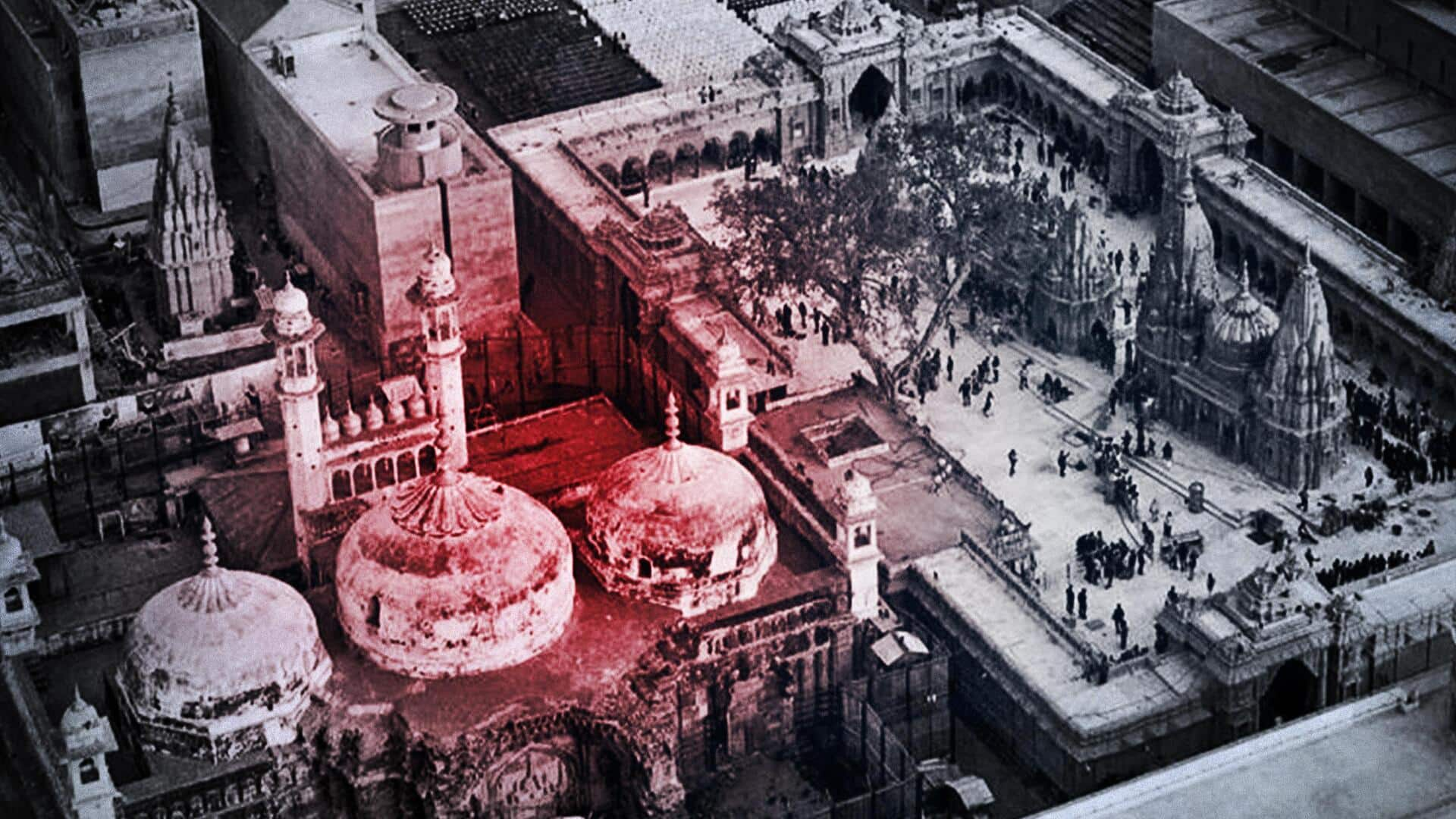
Gyanvapi Mosque dispute: Allahabad HC rejects pleas challenging temple restoration
What's the story
In a setback for Muslim petitioners, the Allahabad High Court on Tuesday rejected pleas challenging a civil suit seeking the restoration of a temple where the Gyanvapi Mosque, Varanasi, exists. It ruled that the 1991 civil suit seeking the right to worship there for Hindus and a 2021 Varanasi court order for the mosque's survey are not barred by the Places of Worship Act.
Context
Why does this story matter?
Right-wing Hindu organizations assert that several mosques, including the Gyanvapi Mosque, were built by Muslim invaders after destroying Hindu temples. The Bharatiya Janata Party (BJP), after its formation, fomented the issue in the 1980s and 1990s, touting it as a reclamation project for Hindus. However, some Hindu priests reportedly rejected the claims of right-wing groups—especially over the Gyanvapi issue—accusing them of inciting communal tensions.
Details
HC asks Varanasi court to complete hearing in 6 months
On Tuesday, the Allahabad HC also ordered a Varanasi court to complete the hearing of the dispute case within six months. The Anjuman Intezamia Masajid Committee (AIMC) and the Uttar Pradesh Sunni Central Waqf Board moved the petitions challenging the 1991 civil suit and the 2021 order. The Gyanvapi Mosque—adjoining the iconic Kashi Vishwanath Temple in Varanasi, Uttar Pradesh—is managed by the AIMC.
Statement
Only evidence can prove Gyanvapi complex's status: Hindu side counsel
Speaking to CNN-News18, a Hindu side lawyer, Hari Shankar Jain, said, "This judgment is right. The Places of Worship Act is not applicable in this case. Only with evidence it can be proved whether a place is a religious structure or not." To recall, on December 8, the HC's Justice Rohit Ranjan Agrawal reserved judgment after hearing arguments from the petitioners and respondents.
Petitions
Know about petitions in court
According to the Hindu side petitions, the Gyanvapi Mosque is part of a temple. However, the AIMC and the Sunni waqf board contended the case was prohibited by the Places of Worship Act. But the argument has now been rejected. This law reportedly restricts altering the character of any religious place in India and maintains the status quo at the time of independence.
ASI
Allahabad HC allowed ASI survey
In August 2023, the Allahabad HC allowed the Archaeological Survey of India (ASI)'s scientific survey of the Gyanvapi Mosque—barring the sealed Wuzukhana where an alleged Shivling was found last year. It dismissed a petition challenging a Varanasi court order authorizing the survey. Separately, on Monday, the ASI submitted a report on its scientific survey in a sealed cover to the Varanasi District Court.
Developments
Important developments so far
The decades-old dispute resurfaced in August 2021, when five women petitioned the HC, seeking permission to worship at Shringar Gauri Temple near the mosque. A court-ordered video survey followed, which reportedly led to an alleged Shivling's discovery. However, the Muslim side claimed it was a fountain. After this, the Wuzukhana (ablution pond) was sealed, and a scientific survey of the Gyanvapi complex was done.
Supreme Court
Supreme Court refused to intervene last month
Last month, the Supreme Court refused to interfere with the order passed by Allahabad HC's former Chief Justice Pritinker Diwaker regarding the transfer of Ganvapi dispute-related cases to his bench. Chief Justice DY Chandrachud pointed out that the previous judge (Justice Prakash Padia) had not delivered the judgment despite reserving it in 2021 and holding 75 hearings. Hence, transferring the cases was justified.